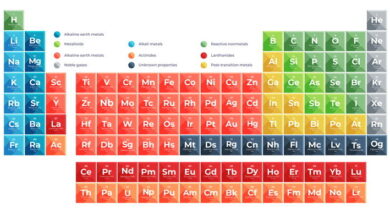Fundamental Principles Of Organic Chemistry MCQs with Answers

Welcome to the Fundamental Principles Of Organic Chemistry MCQs with Answers, it helps learners quickly identify areas for improvement in Fundamental Principles Of Organic Chemistry Online Test.
| Understanding the fundamental principles of organic chemistry is crucial for comprehending the behavior and reactions of carbon-based compounds, which form the basis of life and numerous industrial processes. MCQs (Multiple Choice Questions) on fundamental principles of organic chemistry focus on key concepts essential for building a solid foundation in this field.
Organic chemistry quiz questions typically cover topics such as structural formulas, bonding theories (including hybridization and resonance), stereochemistry (including chirality and isomerism), functional groups (such as alkanes, alkenes, alkynes, alcohols, ethers, and aromatic compounds), and reaction mechanisms (such as substitution, addition, elimination, and oxidation-reduction). Practicing MCQs on fundamental principles of organic chemistry helps reinforce understanding of these concepts and their applications in various industries, including pharmaceuticals, agriculture, materials science, and environmental science. These questions also aid in developing problem-solving skills and critical thinking necessary for tackling complex organic synthesis and analysis tasks. |
Fundamental Principles Of Organic Chemistry Online Quiz
By presenting 3 options to choose from, Fundamental Principles Of Organic Chemistry Quiz which cover a wide range of topics and levels of difficulty, making them adaptable to various learning objectives and preferences. You will have to read all the given answers of Fundamental Principles Of Organic Chemistry Questions and Answers and click over the correct answer.
- Test Name: Fundamental Principles Of Organic Chemistry MCQ Quiz Practice
- Type: Quiz Test
- Total Questions: 40
- Total Marks: 40
- Time: 40 minutes
Note: Answer of the questions will change randomly each time you start the test. Practice each quiz test at least 3 times if you want to secure High Marks. Once you are finished, click the View Results button. If any answer looks wrong to you in Quiz, simply click on question and comment below that question, so that we can update the answer in the quiz section.
Download Certificate of Fundamental Principles Of Organic Chemistry Test
On the end of Quiz, you can download the certificate of the quiz if you got more than 70% marks.
Fundamental Principles Of Organic Chemistry Flashcards
Which term refers to the addition of water to break down complex organic compounds into simpler ones?
Hydrolysis
What is the name of the process by which organic compounds react with oxygen to produce carbon dioxide, water, and energy?
Combustion
What is the term for the process of breaking down complex organic compounds into simpler ones?
Decomposition
Which functional group contains a nitrogen atom bonded to an alkyl or aryl group and a carbonyl group?
Amide
What is the name of the process by which small molecules are joined together to form larger ones?
Polymerization
Which term refers to the study of how the spatial arrangement of atoms affects the properties and behavior of molecules?
Stereochemistry
What is the term for compounds that are composed of the same atoms but differ in the arrangement of those atoms in space, resulting in non-superimposable mirror images?
Enantiomers
Which type of isomerism occurs when compounds have the same molecular formula and connectivity but differ in the arrangement of atoms in space?
Optical
What is the term for compounds with the same molecular formula and arrangement of atoms but different spatial arrangements?
Stereoisomers
Which type of isomerism occurs when compounds have the same molecular formula but differ in spatial arrangement around a double bond?
Geometric
If you are interested to enhance your knowledge regarding Physics, Computer, and Biology please click on the link of each category, you will be redirected to dedicated website for each category.




